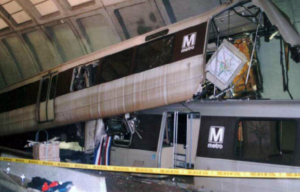 The Communication Disconnection is Avoidable!
The Communication Disconnection is Avoidable!
Recently, there’ve been several unflattering stories circulating regarding the D.C. Metro, from budget woes to significant safety concerns, from potential shutdowns to actual shutdowns. In the midst of these, one quote from an April 4, 2016 New York Times article stuck out, attributed to Metro’s general manager Paul J. Wiedefeld. “He said he saw Metro’s safety and reliability problems as rooted in ‘a very large disconnect between front-line employees and management’.” That’s huge! That a major American city’s (and our nation’s capitol, for good measure) main transportation network is being crippled because people cannot effectively communicate with each other is rather unbelievable…or is it?
Tensions between management and those they manage are nothing new, as it’s not always easy to have the difficult conversations that often occur between superiors and subordinates. The more those difficult conversations are avoided, as they typically are, the more difficult they become to have. And what winds up happening is that communication becomes limited and narrowly focused on what feels comfortable, as opposed to what needs to be communicated, while tension grows. Trust becomes compromised, negative feelings spread like wildfire, and logic no longer makes sense. Again, there’s nothing unusual about this, nor is it to be unexpected under difficult circumstances. But as human beings with the capacity to learn, expand, and grow, we need not be restricted by circumstance. Recognizing where our communication challenges are, honestly addressing them, and taking those somewhat difficult steps to expanding our communication repertoire will allow us to overcome this inherently human dilemma. Vineet Nayar, in his book Employees First, Customers Second, address this issue head on (no pun intended) as he highlights a management communication style that prioritizes employees in a manner not typically done in organizations, to great result. But that’s the exception, not the rule.
Realize most of us have never truly been taught to communicate, and often it’s assumed we just know how to do it. Thankfully, we humans are never too old to learn how to do things differently and better, including communicate. Recognizing how our communication can build or erode trust, generate positive or negative emotions, and come across as reasonable or irrational can go a long way. By learning how to expand our communication options, no matter how uncomfortable that initially may be, we can extend our conversations beyond our current limits, and generate new possibilities. And if we don’t? Well, D. C. Metro’s situation should give us motivation to reconsider.

